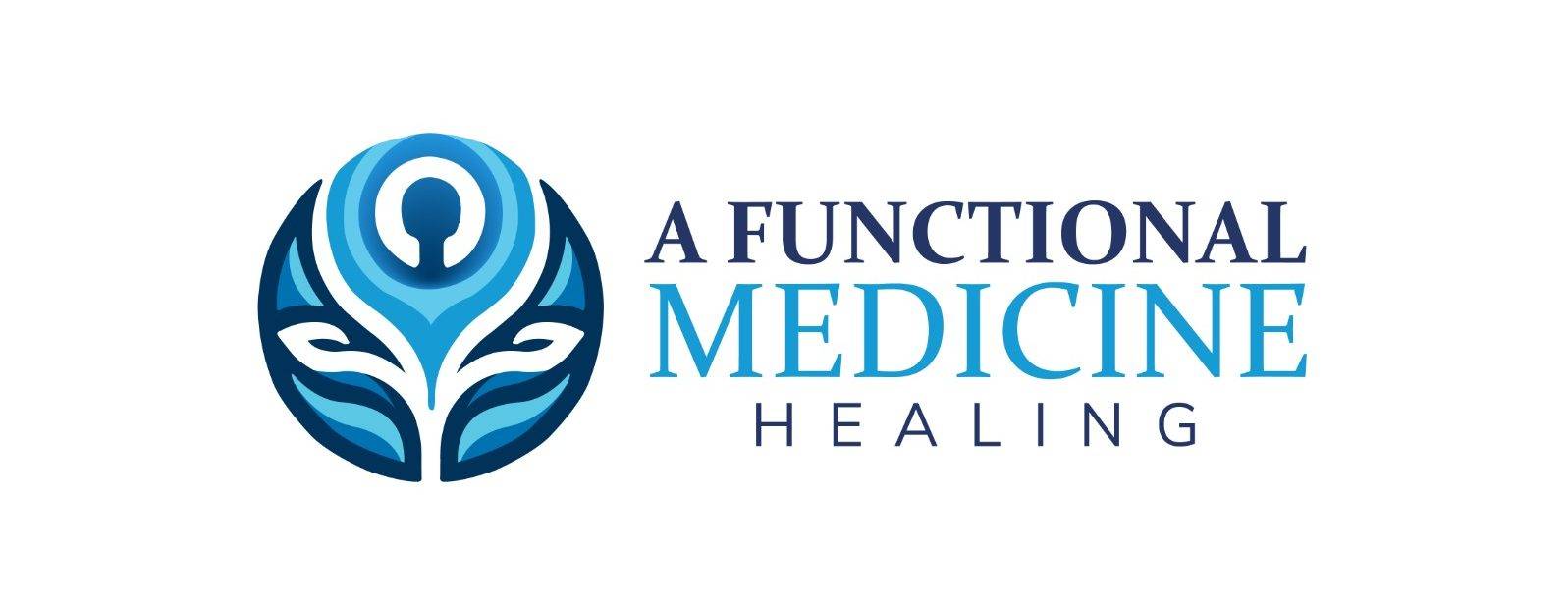7 Hidden Barriers to Weight Loss: Discover What’s Holding You Back”
Struggling to shed pounds despite your best efforts can be frustrating and disheartening. Often, the obstacle to weight loss isn’t just about diet or exercise; underlying health issues can play a significant role. This blog post uncovers seven common yet frequently overlooked factors that may be thwarting your weight loss journey. From insulin resistance to leaky gut, understanding these hidden barriers is crucial. We also emphasize the importance of consulting a functional medicine provider to get to the root cause of your weight loss struggles.
- Insulin Resistance: The Silent Weight Loss Blocker
Insulin resistance can make weight loss challenging. It occurs when your body’s cells don’t respond effectively to insulin, leading to higher blood sugar and insulin levels, which can promote fat storage.
Tip:
- Low-Glycemic Diet: Focus on foods that have minimal impact on blood sugar levels.
- Low Thyroid Function: Slowing Down Your Metabolism
An underactive thyroid, or hypothyroidism, can slow down your metabolism, making it harder to lose weight. Symptoms include fatigue, cold intolerance, and unexplained weight gain.
Tip:
- Get Thyroid Levels Checked: Regular screening can help detect thyroid issues.
- Vitamin B12 Deficiency: Energy and Metabolism Disruptor
Low levels of vitamin B12 can lead to fatigue and a sluggish metabolism. B12 is crucial for energy production and maintaining a healthy nervous system.
Tip:
- B12-Rich Foods: Include more eggs, dairy, and fortified foods in your diet.
- Vitamin D Deficiency: The Sunshine Vitamin’s Role in Weight Management
Vitamin D is not only essential for bone health but also plays a role in weight management. Low levels of Vitamin D have been linked to increased fat accumulation.
Tip:
- Sun Exposure and Supplements: Ensure adequate Vitamin D through sunlight and, if necessary, supplements.
- Toxins in Your Body: The Unseen Weight Loss Barrier
Exposure to everyday toxins can disrupt your body’s natural ability to balance hormones and can lead to weight gain.
Tip:
- Detoxify Your Environment: Reduce exposure to toxins in food, water, and household products.
- Mold Exposure: An Overlooked Culprit
Exposure to mold can lead to inflammation and hormonal imbalances, indirectly affecting your weight loss efforts.
Tip:
- Mold Inspection: If you suspect mold in your living environment, get it inspected and removed.
- Leaky Gut Syndrome: The Gut-Weight Connection
Leaky gut syndrome, where the intestinal lining becomes permeable, can lead to inflammation and hormonal imbalances, making weight loss more difficult.
Tip:
- Gut-Healthy Diet: Incorporate probiotics and prebiotics to support gut health.
Seeking Professional Help: The Functional Medicine Approach
If you’re struggling with weight loss, consider consulting a functional medicine provider. They focus on identifying and addressing the root causes of health issues, offering a more comprehensive approach to weight management.
Why Choose Functional Medicine?
- Personalized Care: Tailored strategies based on your unique health profile.
- Holistic Approach: Addresses all factors affecting your health, not just symptoms.
- In-depth Analysis: Includes detailed testing to uncover underlying issues.
Conclusion
Weight loss is a complex journey influenced by various factors beyond just calories and exercise. By understanding and addressing issues like insulin resistance, thyroid function, nutrient deficiencies, toxins, mold exposure, and gut health, you can unlock the path to successful weight loss. Remember, seeking out a functional medicine provider can be a transformative step in discovering and overcoming your personal barriers to weight loss.
Embark on a more informed and effective weight loss journey by paying attention to these often-overlooked factors. Your path to a healthier weight is about more than just diet; it’s about overall health and well-being.
#2
3 Proven Strategies to Accelerate Your Weight Loss Journey”
Are you struggling to see the results you desire on your weight loss journey? It’s a common challenge, but the key might lie in adjusting your approach. This blog post explores three powerful strategies that can significantly boost your weight loss: intermittent fasting, High-Intensity Interval Training (HIIT), and weightlifting. Each of these methods brings unique benefits to your weight loss regimen, helping to enhance metabolism, burn fat, and build muscle. Let’s dive into how incorporating these approaches can reinvigorate your weight loss efforts.
- Intermittent Fasting: Timing Your Meals for Optimal Weight Loss
Intermittent fasting (IF) involves cycling between periods of eating and fasting. It’s not just about what you eat, but when you eat.
How It Helps:
- Boosts Metabolism: IF can increase your metabolic rate, helping you burn more calories.
- Enhances Hormone Function: It improves important weight loss hormones, including increasing levels of norepinephrine.
- Promotes Fat Loss: IF specifically aids in losing fat while preserving muscle mass.
Getting Started:
- Popular Methods: Try the 12/12method as a beginner, where you fast for 12 hours and eat during an 12-hour window.
- Stay Hydrated: Drink plenty of water during your fasting periods.
- High-Intensity Interval Training (HIIT): Maximize Fat Burning
HIIT involves short bursts of intense exercise followed by low-intensity recovery periods. It’s a time-efficient way to exercise.
How It Helps:
- Increases Calorie Burn: HIIT can help you burn a lot of calories in a short amount of time.
- Boosts Metabolic Rate: It can increase your metabolic rate for hours after exercise.
- Fat Loss Without Muscle Loss: HIIT is effective in shedding fat while maintaining muscle mass.
Implementing HIIT:
- Workout Structure: Alternate between high-intensity exercises (like sprinting) and periods of rest or low activity.
- Frequency: Incorporate HIIT workouts 2-3 times a week, allowing for recovery between sessions.
- Weight Lifting: Building Muscle to Enhance Fat Loss
Lifting weights is crucial for building muscle, which can aid in your weight loss efforts.
How It Helps:
- Increases Muscle Mass: More muscle mass leads to a higher resting metabolic rate, meaning you burn more calories at rest.
- Improves Overall Strength: This can make daily activities easier, encouraging more movement throughout the day.
- Supports Bone Health: Weight lifting is beneficial for bone density and overall physical health.
Starting with Weight Lifting:
- Beginner Friendly: Start with lighter weights, focusing on form.
- Consistency is Key: Aim for weight lifting sessions 2-4 times a week.
- Gradual Progression: Increase weight and intensity as you grow stronger.
Conclusion
Incorporating intermittent fasting, HIIT workouts, and weight lifting into your routine can be game-changers in your weight loss journey. Each of these strategies offers unique benefits, from boosting metabolism to building muscle, that can help you break through weight loss plateaus.
Remember, the most effective weight loss plan is one that you can stick to consistently. Start small, be patient with your progress, and consult with a healthcare professional if you have any health concerns. By combining these powerful strategies, you’re setting yourself up for a more successful and sustainable weight loss journey. Don’t forget to consult a health care provider and certified trainer prior to beginning any new exercise/weight lifting, or fasting plan.
Embrace these techniques to kickstart your metabolism, build strength, and shed those extra pounds. Your path to a healthier, fitter you is just a few strategic steps away!
#3
Is Poor Gut Health Behind Your Weight Gain? Understanding the Role of Akkermansia”
Struggling with weight loss can be frustrating, especially when you feel like you’re doing everything right. However, an often-overlooked factor in weight management is gut health, particularly the balance of specific beneficial bacteria like Akkermansia. This blog post delves into the crucial role of Akkermansia in maintaining a healthy weight and how low levels of this gut bacteria can contribute to weight gain. Understanding the link between gut health and weight can provide new insights and strategies for effective weight management.
What is Akkermansia?
Akkermansia muciniphila is a type of bacteria found naturally in the human gut, specifically in the mucus lining of the intestines. It plays a vital role in maintaining gut health and has been linked to various health benefits, including weight management.
The Role of Akkermansia in the Gut:
- Gut Barrier Integrity: Akkermansia helps maintain the strength and integrity of the gut lining, preventing harmful substances from leaking into the bloodstream.
- Metabolism Regulation: It is involved in regulating metabolism and has been linked to healthier blood sugar levels and fat distribution.
How Low Levels of Akkermansia Can Lead to Weight Gain
Research suggests that individuals with lower levels of Akkermansia in their gut may be more prone to weight gain and associated health issues.
The Connection Explained:
- Impaired Gut Barrier: Reduced Akkermansia levels can weaken the gut lining, leading to inflammation, which has been linked to weight gain.
- Metabolic Disruption: A lack of Akkermansia can disrupt normal metabolic processes, potentially leading to increased fat storage and insulin resistance.
Signs of Poor Gut Health
If you’re struggling with weight management, it might be worth considering your gut health. Signs of an imbalanced gut microbiome include:
- Digestive Issues: Like bloating, gas, constipation, or diarrhea.
- Frequent Illness: A weakened gut barrier can impact your immune system.
- Chronic Fatigue: Ongoing tiredness without a clear cause can be linked to gut health.
Boosting Akkermansia Levels for Better Weight Management
Improving the levels of Akkermansia in your gut can be beneficial for weight management. Here are some ways to support this beneficial bacteria:
Diet and Lifestyle Changes:
- Fiber-Rich Foods: Consuming a diet high in fiber, particularly prebiotic fibers, can promote the growth of Akkermansia.
- Polyphenol-Rich Foods: Foods like berries, nuts, and green tea, which are high in polyphenols, can also support Akkermansia.
- Avoiding Excessive Antibiotics: Unnecessary antibiotic use can disrupt the balance of gut bacteria, including Akkermansia.
Seeking Professional Advice
If you suspect that your weight challenges may be linked to poor gut health, consider consulting with a healthcare professional. They can provide tailored advice and may suggest specific tests to assess your gut microbiome, including the levels of Akkermansia.
The Role of Functional Medicine:
- Holistic Approach: Functional medicine looks at your overall health and lifestyle to address weight management issues.
- Personalized Strategies: Receive customized dietary and lifestyle recommendations to improve gut health and support weight loss.
Conclusion
Understanding the role of Akkermansia and gut health in weight management offers a new perspective for those struggling with weight loss. By nurturing your gut microbiome and boosting beneficial bacteria like Akkermansia, you can support your body’s natural weight management processes.
Remember, a healthy gut is a key player in overall health and can be a crucial factor in achieving and maintaining a healthy weight. Consider exploring the health of your gut as part of your journey to a healthier, more balanced body.



Leave A Comment